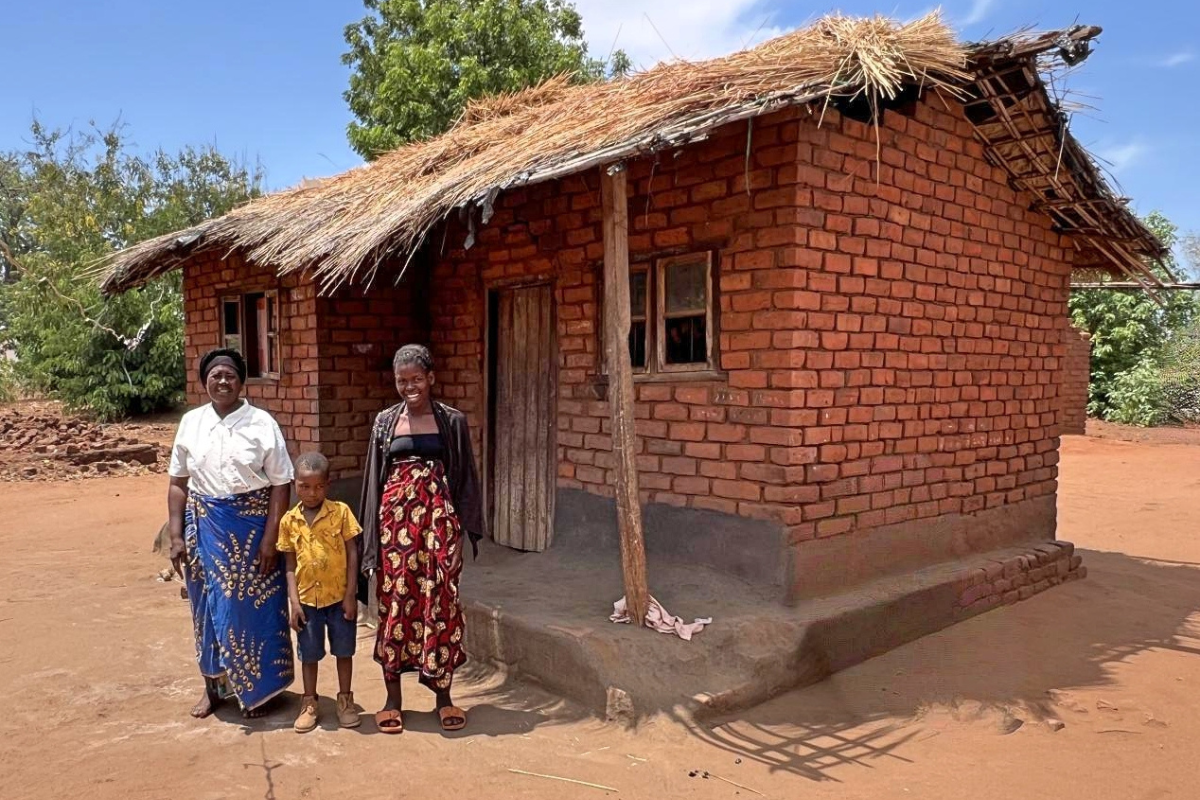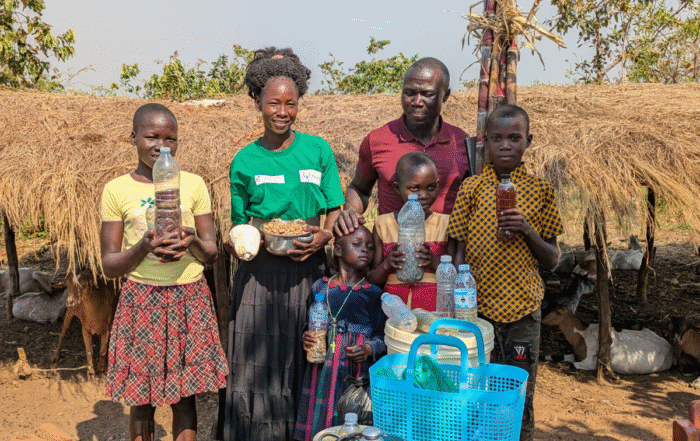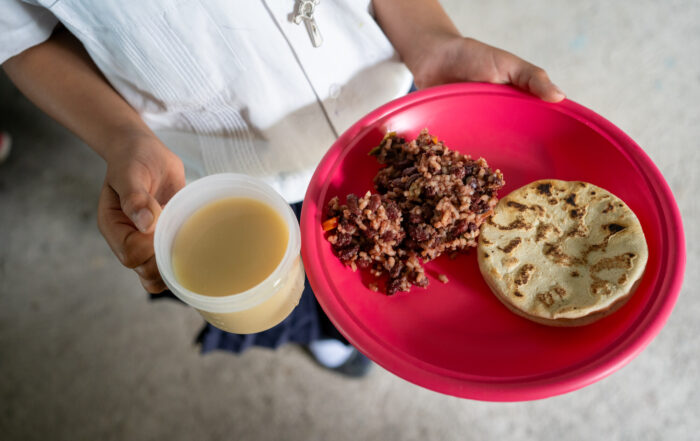Emergency Food Gives Hope to Displaced Family
“The only thing that really matters to me now is my children,” says Halima. She has three children—a 12-year-old girl and two boys, ages 11 and 3. “I thank God for them; they are bright and courageous.” Halima and her children live in a tent shelter in Lebanon with Halima’s mother, father, and grandmother. Her husband was killed in Syria.
“Life was good before the war; we lived peacefully,” says Halima. In Syria, her parents owned a home; but they fled to Lebanon when the war began. “Although our situation is very difficult, at least we found safety and emotional relief. In Syria, I could not sleep because of the bombings and all the things we saw.”
Before the COVID-19 lock-downs, Halima and her mother Aida worked in the fields, picking up grass and grapes from the vineyard to support the family. Now there is no work at all. “We first heard about the spread of the Coronavirus through neighbours. Then the municipality told us we were forbidden to leave the tent or have visitors,” says Aida. She and Halima take turns going out to buy food so the family can survive. Aida’s husband is vulnerable to the virus because he has diabetes. “We are barely able to buy bread, and if we want to buy tomatoes, we can only afford half a kilo,” says Aida.
Food crisis or worse was already a problem for 135 million people in 55 countries and that number is expected to grow to 265 million in 2020. According to the 2020 Global Report on Food Crises, acute hunger has been on the rise over the past four years due to conflict, climate change, and economic downturn. The global pandemic is making the problem worse.
The Food & Agriculture Organization of the UN reports that families struggle to nourish themselves for five main reasons:
- Reduced household purchasing power.
- Inadequate food supply due to low agricultural production and poor distribution.
- Government inability to protect vulnerable people.
- Political instability.
- Conflict among groups.
War and political instability forced Halima and her family to flee Syria. The pandemic lock-downs means that these resilient women can’t feed their loved ones. Until the situation stabilizes, they need help.
But there is hope! With your help, World Renew can feed hungry families.
World Renew partners with a local church in Lebanon to provide emergency food. “It felt a little weird entering a church for the first time, but people were very nice and welcoming. I felt a lot of love from them,” says Halima. The church supplies the family with monthly food boxes and other necessities.
You can help more families in desperate need of emergency food!
Thanks to a matching grant from Canadian Foodgrains Bank, every $1 you donate will be matched 4X to feed people in need.
Make Hope Strong for families like Halima’s.
MORE STORIES AND NEWS
Malawi: Compassion through strength
Compassion through strength In Malawi February 17, 2026 Compassion through strength in Malawi February
Uganda: Beyond food secure
Beyond food secure In Uganda February 11, 2026 Beyond food secure in Uganda February
Canada: Fasting for Change: Fighting World Hunger
Fasting for Change: Fighting World Hunger October 10, 2025 Fasting for Change: Fighting World Hunger






